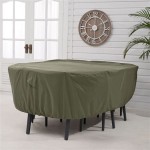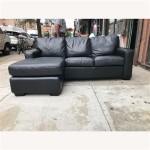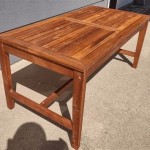Best Rollers for Painting Furniture
Choosing the right roller for painting furniture is essential for achieving a smooth, professional-looking finish. Here's a comprehensive guide to help you select the best roller for your specific needs:
Types of Rollers
Foam Rollers: Foam rollers are ideal for smooth surfaces and provide a fine, even finish. They have a closed-cell construction that prevents paint from being absorbed into the roller, ensuring a consistent application.
Mohair Rollers: Mohair rollers are made from natural goat hair and offer excellent paint pickup and release, making them suitable for both smooth and semi-rough surfaces. They produce a slightly textured finish.
Microfiber Rollers: Microfiber rollers have thousands of tiny fibers that grab and hold paint, resulting in a smooth, lint-free finish. They are versatile and can be used on both smooth and rough surfaces.
Roller Nap Size
The nap size refers to the length of the roller's fibers. Choose the right nap size based on the surface texture of your furniture:
- 1/4-inch nap: Ideal for smooth surfaces like cabinets, doors, and tabletops.
- 3/8-inch nap: Suitable for semi-rough surfaces like chairs, headboards, and textured wood.
- 1/2-inch nap: Best for rough surfaces like outdoor furniture, wicker, and chippy paint.
Handle Type
Roller handles come in three main types:
- Cage Frames: These frames securely hold the roller in place and allow for easy rolling.
- Wire Frames: Wire frames are lightweight and provide better control over the roller.
- Extension Poles: Extension poles allow you to reach higher areas without a ladder, making them suitable for large pieces of furniture.
How to Use a Roller for Painting Furniture
Step 1: Prepare the Surface: Clean and sand the furniture to remove any dirt or debris. Prime the surface to improve paint adhesion.
Step 2: Load the Roller: Dip the roller into the paint tray and roll it back and forth to evenly distribute the paint.
Step 3: Apply the Paint: Start painting from the edges and corners, using light, even strokes. Roll in one direction only to avoid creating brush marks.
Step 4: Clean Up: Rinse the roller thoroughly with water or thinner to remove any residual paint. Let it dry before storing.
Tips for Choosing the Best Roller
- Consider the surface texture of your furniture when selecting the nap size.
- Opt for high-quality rollers that shed less fibers.
- Use a cage frame for extra stability and control.
- Extend the handle if necessary to reach higher areas.
- Practice your technique on a scrap piece of wood before painting the actual furniture.

The Best Paint Roller For A Smooth Finish On Cabinets And Furniture

Best Paint Roller For Cabinets And Furniture A Smooth Finish

Quick Tip Tuesday The Best Roller For Painting Furnitureand 9 Helpful Tips Salvaged Inspirations

Best Foam Rolling Sleeve For Painting Wood Furniture Skirting Boards Rollingdog

Holy Grail Of Rollers Smooth Finish No Sprayer

Best Paint Roller For Cabinets And Furniture Amelia Lawrence Style

Best Rollers For Painting Furniture How To Paint Without Marks

Chalk Painting Furniture Smooth Roller Vs Brush Dresser Makeover Part 3

How To Paint Furniture A Beginner S Guide Frenchic

How To Paint Furniture The Home
See Also








